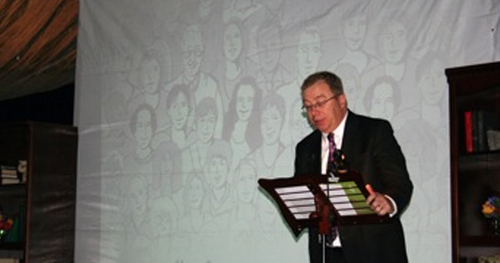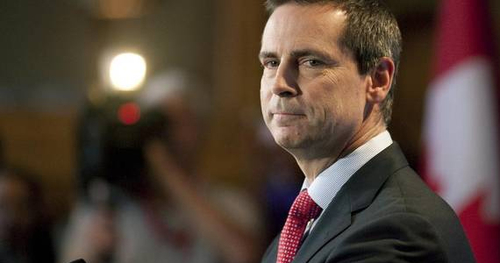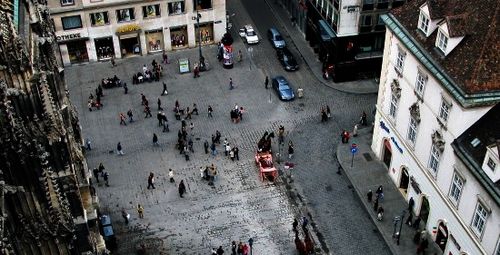We would ask hard questions about someone who rushes to save a piece of burning toast while his kitchen is on fire. Likewise, questions must be asked about a government that spends enormous time and energy interfering with private institutions while millions of taxpayers dollars are being wasted on public construction projects in Canada. Those federal tax dollars are overspent annually on infrastructure projects due to restrictions on labour competition. At the same time, many unions spend the dues collected from their members on causes that do not have rank-and-file support. Both are real public problems that superficially seem different but are, in fact, intricately linked. Both are solvable through government policy aimed at greater accountability. The accountability can come from either effective government regulation or increased competition. Curiously, with legislation that might have come from the far left of the NDP in another context, Conservative MPs are choosing increased regulation rather than competition. They are earnestly promoting Bill C-377, which orders that any union expense over $5,000 be publicized to all Canadians, not just a unions members. The Parliamentary Budget Officer will conduct a cost analysis of the bill before it returns to committee in the next few weeks. C-377 tries to solve the problem of unions spending money on projects sponsoring Israeli apartheid days or funding student strikes in Quebec, for instance that have nothing to do with the work they should do. Yet its strict provisions outstrip, by a wide measure, the obligations imposed on charities or corporations. Its a classic case of government intervening in private associations of citizens while creating costly and ineffective regulation detrimental not only to union members, but to all taxpayers. Will the bill create greater union accountability? No. Its objective is to publicly disclose political activities. But most unions make no secret of their political involvements anyway. Last year, Ontario unions disclosed spending millions for political purposes through the Working Families Coalition, which filtered the funds into provincial Liberal election efforts. Union dues flagrantly supported one side in a political campaign. The real problem was not anything that would show up on a balance sheet. It was the army of union "volunteers" who ran campaigns all over Ontario at no cost to the Liberals. Yet provincial Progressive Conservative efforts to make it an election issue got no serious traction. Nor would the federal Conservatives Bill C-377 have prevented it. What the bill will do is drive unions to cover their flanks and increase consolidation. Larger unions can handle regulation and paper work. They are also far less likely to be accountable. They will move, like any large bureaucratic organization, toward central hubs of political power and work less for their base-line constituents. In other words, C-377 will work directly contrary to its supporters intentions. That leaves the alternative to regulation: competition. Ensuring greater competition among unions would force them back to the basics of representing front-line workers. Nothing promotes accountability like having someone ready to take your job or your business. It works for government. It works in the union world, too. Sadly, C-377 is more likely to snuff out the small, independent unions that are looking to innovate, reinvigorate and renew Canadas labour movement. The competition those smaller unions create is good for union members. It would also be a major benefit to taxpayers. A new Cardus study shows just how significantly union monopolies increase costs for municipal, provincial and federal infrastructure projects. For example, the federal government alone lost between $13-million and $53-million on the Union Station renovation in Toronto due to a construction labour monopoly. In Hamilton, the new Woodward Water Treatment facility cost federal taxpayers between $11-million and $46-million more than if there had been competition from multiple labour pools on the project. And that doesnt include costs incurred by the provinces or municipalities. Do the math. On two projects alone, thats $24-million to $99-million in wasted spending. Now weigh that against proponents of Bill C-377 fussing over $5,000 internal union expenditures. Which of these two should really concern Canadians most: the kitchen fire or the burning toast? The answer, surely, is for Conservative MPs to protect their constituents pocketbooks and jobs through wise stewardship of federal tax dollars. They should do so (and simultaneously solve Canada's union problems) by relying on conservatives bread and butter promoting competition rather than half-baked interventionist schemes.

Conservative bill forcing union disclosure is costly and inefficient
November 12, 2012

Survey finds faith is lacking for some
October 29, 2012

Alternative school grads more civic-minded: report
October 17, 2012

A Jerusalem Lost
In The Lost History of Christianity, Philip Jenkins makes an important, and humbling, observation: Just because Jesus' church will survive through all time does not mean it will thrive in all places, or at all times. Take, for instance, the North Korean capital of Pyongyang, known during the 1940s as the "Jerusalem of the East." In Escape from North Korea: The Untold Story of Asia's Underground Railroad (Encounter), Hudson Institute senior fellow Melanie Kirkpatrick labors to set the once-holy city's record straight. Banding together dozens of personal accounts of survivors who have fled North Korea, she tells a story of bravery, luck, disappointment, and death; of Christian activists and money-hungry brokers united behind a simple Mosaic invocation: Let my people go. Until the mid-1990s, there wasn't much to be gained by rushing the 880-mile border with China. With borders sealed and news of the outside world scarce, few ordinary North Koreans escaped. But when a crippling famine struck and a sudden Chinese prosperity beckoned, the trickle of refugees swelled to nearly half a million, its path smoothed by a relaxation of restrictive internal policies. Freedom, religious or otherwise, never entered their political vocabulary. Most fled simply out of hunger. Since the Korean War, fewer than 25,000 refugees have reached safety in South Korea. Yet North Korea receives less international attention than other failed states (notwithstanding accounts like this year's Escape from Camp 14: One Man's Remarkable Odyssey from North Korea to Freedom in the West). It does not have the status of an "Asian Darfur." Nor is the degradation of its people widely understood, even among South Koreans or Korean Americans. Culpability for this apathy and ignorance, argues Kirkpatrick, belongs at least partly to South Korean presidents Kim Dae-jung and Roh Moo-hyun, whose "Sunshine" policy (1998-2008) muted official criticisms of the Pyongyang regime in an effort to build good will. Activists and aid workers now call this period the "Lost Decade." Chinese intransigence makes the situation still worse. In contravention of international law, it remains official Chinese policy to hand North Korean refugees back to North Korea, where they face torture, incarceration, and possibly death. International options remain limited so long as China sustains its support for what, even by its own estimates, is an increasingly unstable and erratic government. Chinese interest is in stability. An Arab Spring in North Korea could unleash a flood of refugees and a civil war into which it would almost inevitably be drawn. China, then, prefers Pyongyang's instability and brutality to the unknown consequences of collapse. Thus is the Jerusalem of the East condemned to swelter under a largely invisible repression, its citizen-prisoners denied religious, economic, and associative freedoms. Escape from North Korea reaches us at a timely moment, marked by rising awareness of the regime's atrocities. For students of the Korean Peninsula, who know well the grim statistics, here is a rare book that puts human faces on the numbers, a lamentation over policies and duplicities that have haunted a people terribly divided.
September 27, 2012

Religious, private school graduates active, engaged citizens: study
September 26, 2012

Ray Pennings is interviewed by Michael Coren for Sun News
September 26, 2012

The Globe and Mail covers Cardus report on <I>Bill 13</I>
September 26, 2012

The Chicago Teachers’ Strike: A Just Conflict?
I’ll bet you a deep dish pizza that you have an opinion on the Chicago teachers’ strike. It’s like asking if the White Sox or the Cubs represent Chicago best. It’s hard to take a neutral stance on strikes, largely because they involve that which matters so much: work, wages and communities. But is there a way to put a normative framework on these events which might help us understand whether we should lend one side or another our support, and if so, why? Strikes and lockouts are actions taken by a given party (unions or employers, whether private or public) to enforce their will on the other party through the use of power to achieve a desired end. That power is exerted either through the withholding of labor (a strike, initiated by the union) or through the withholding of work (a lockout, initiated by the employer). Does that sound familiar? If you’re thinking this sounds remarkably like Clausewitz’s definition of war, “the continuation of politics by other means,” then you’re right. Strikes and lockouts are the continuation of labor negotiations by other means. Thinking of strikes in this way is a helpful tool, because, as with political disputes, it helps us place economic disputes into a context where questions about justice can be asked. I’ve found it helpful to transpose just war criteria onto into labor relations terms. Here is a short, albeit imperfect, list which I’ve found useful in thinking about strikes. Jus ad Inflictum Legitimate authority. A strike is only just if it is called by the union, within the laws of the land and within its own rules. Just cause. It must be waged in response to a particularly egregious proposal or action which will damage either party. Mere discomfort should not be enough. Right intention. It must be waged to right a wrong. Any strike which is waged with the intent of “getting back” at the other party is not just. Probability of success. A strike which is, on balance, unlikely to effect the change the union desires is not a just strike. Proportionality. A union must consider the effects that their strike will have on the wider public. Additionally, it’s helpful to note that there are rules which should govern action within strikes, themselves. The criteria fall under the category of Jus in Inflictum: Obedience to the laws of the land. Boundaries set out by political authorities must be respected, violence is strictly prohibited, and officers of the law are respected and obeyed if they instruct within the law. Proportionality. Labor must only withhold its labor. It may not engage in subterfuge or sabotage by other means in order to enforce its will. This, of course, does not preclude unions from mounting aggressive media or information campaigns. Discrimination. Labor should focus on enforcing its will on the employer. As with war, there will be “collateral damage” (i.e. traffic is slowed, some services withheld), but these should not be pursued intentionally. Some in the world of labor relations might suggest that such criteria set the bar too high—that strikes are not as damaging as war, and thus don’t require such extensive justification. But those who consider work to be a cooperative venture between labor and capital, and who view the preservation of social goodwill among workers and employers to be critical in the pursuit of both justice and good work will note that strikes, like war, are extremely damaging and often have long-term downsides. In each particular case, it is true that there are many, sometimes conflicting variables to consider, but, as Steven Garber notes, all justice this side of Eden and the Lord’s return is proximate. Under this framework, the Chicago teachers’ strike failed to meet three, and possibly four, of the jus ad inflictum criteria. First, there was no just cause: the strikes were clearly not in response to outrageous or particularly egregious proposals by the city. Likewise, there was no clear wrong which the union was trying to rectify, and even if there was, the strike action seemed to disproportionately and negatively affect vulnerable children, especially the children for whom school is a rare place of stability and peace. Finally, the Chicago courts were in the process of deciding whether or not the strike was actually lawful, as the teachers are forbidden by law to strike for “non-economic matters.” If they had lost this case, they would have failed to meet the “legitimate authority” clause. But, regardless of this, the strike happened and damage to both parties—and the public—has been done. And, whether a strike is justified or not, its conclusion demands, as Robert Joustra recently noted, a just peace. It is not enough to repay a wrong with another. The action must be aimed at a solution in which not only justice is achieved, but where justice in understood in the terms set out by the Book of Common Prayer, where “there is no strife among those who are engaged in the varied tasks of industry and commerce...That all, seek only what is right...[and] continue in brotherly union and concord, to their own well-being and the good of their fellow men.”
September 21, 2012

Doug Koop covers Cardus cities research for Rethink Urban
Doug Koop covers Cardus research on Cities for Rethink Urban. Leaning on the research in Living on the Streets he suggests that faith communities are already effective and important agents in renewing downtowns. Read the entire article here.
September 18, 2012
Media Contact
Daniel Proussalidis
Director of Communications
